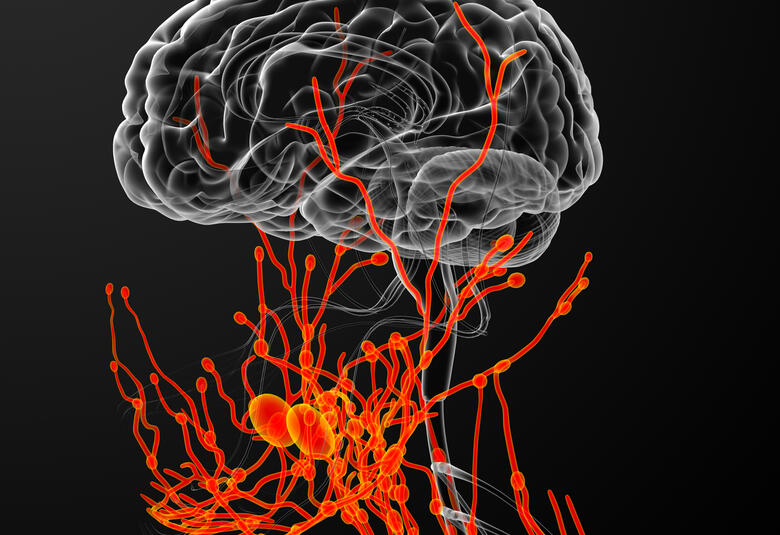Agitation, anxiety, apathy, depression, disinhibition and – to a lesser extent – delusions and hallucinations are part of the picture in people with dementia. These comorbidities are the province of psychiatry. Yet the specialty seems strangely reluctant to get involved.
Memory clinics are now common in the Netherlands. At the last count there were 84. But involvement of psychiatrists is rare. Despite the requirement for a multidisciplinary team, a psychiatrist is part of it in only 7% of cases.
This situation is much to be regretted, Frans Verhey (University of Maastricht) told the meeting. Psychiatrists have many skills that they can contribute to the care of people at all stages of dementia.
Psychiatrists involved in only 7% of memory clinics
Mind the gap
One important role they can play is to bridge the divide between a strictly biomedical model, of the kind favoured by many neurologists dealing with dementia, and a psychosocial model emphasising the need for care rather than the search for cure. Psychiatrists can help foster an integrated, non-reductionist view.
More than 50% of people living with dementia have not received a formal diagnosis, Manuel Martin-Carrasco (Hospital Humanitarias del Sagrado Carazon, Bilbao, Spain) explained at the session on psychiatry in dementia care.
Often a euphemism such as “memory loss” is used. In Spain, the term Alzheimer’s Disease has such negative connotations that “senile dementia” is sometimes preferred. Family members frequently suggest that the patient is not told, because they fear the distress it will cause. This is despite evidence that people do want to know. There is initial distress, of course, but in most cases this is short-term. The challenge for clinicians is to balance honesty with maintaining hope.
Advantages of early disclosure
Unfortunately, poor practice is not uncommon: forwarding the patient a copy of the letter sent by the hospital to the general practitioner is not the way we should communicate.
An advantage of early diagnosis and disclosure is that the patient and family are able to adjust to the illness and plan for the future, which may enable institutionalisation to be postponed. But we must respect the individual’s right to decline an assessment or not to know the diagnosis.
The challenge for clinicians is to balance honesty with maintaining hope
There are many issues of a medico-legal nature which the psychiatrist dealing with dementia must be aware of. These include:
- Patient surrogates and financial power of attorney
- The need to discuss end-of-life issues regarding resuscitation, pain management and withdrawal of treatment
- Inheritance and the disposal of assets
- Means of funding long-term care
- Legal capacity
- When the patient is too ill to continue driving.
Other issues of capacity must also be addressed, ideally when the patient is still able to deal with them. Assessment of capacity has to be repeated, given the progressive nature of the disease.
Bitterness an added burden
Psychiatrists likely to understand all-important family dynamics
Psychiatrists are well placed to deal with these issues, Dr Martin-Carrasco argued, and they probably have a better understanding than neurologists of all-important family dynamics. Efforts must be made to prevent a legacy of bitterness adding to the burden of the disease.
It should be remembered that although the most common abuse of people with dementia is financial, physical abuse also occurs. Warning signs include unusual injuries and unexplained withdrawal. The presence of dementia does not necessarily mean that the patient is an inaccurate reporter of events.
Michael Rapp (University of Potsdam, Germany) has been looking at practices in nursing homes from the perspective of a geriatric psychiatrist. One issue that concerns him is the long-term use of neuroleptics in patients with problems of behaviour.
Misuse of neuroleptics
It seems that around 60% of German patients who have dementia and are being looked after in nursing homes are on neuroleptics – despite safety and tolerability issues with prolonged use
Often, the drugs are prescribed for depression or apathy rather than agitation.
To see whether practice might be changed, he and colleagues conducted a trial in which nursing homes were randomised to either a control group or an intervention designed to train staff in identifying the causes of behavioural symptoms and the potential of non-pharmacological interventions.
The intervention decreased rates of agitation and apathy among dementia patients, but there was no substantial change in use of neuroleptics. So it seems that the behavioural changes were not perceived as clinically significant.
Our correspondent’s highlights from the symposium are meant as a fair representation of the scientific content presented. The views and opinions expressed on this page do not necessarily reflect those of Lundbeck.






